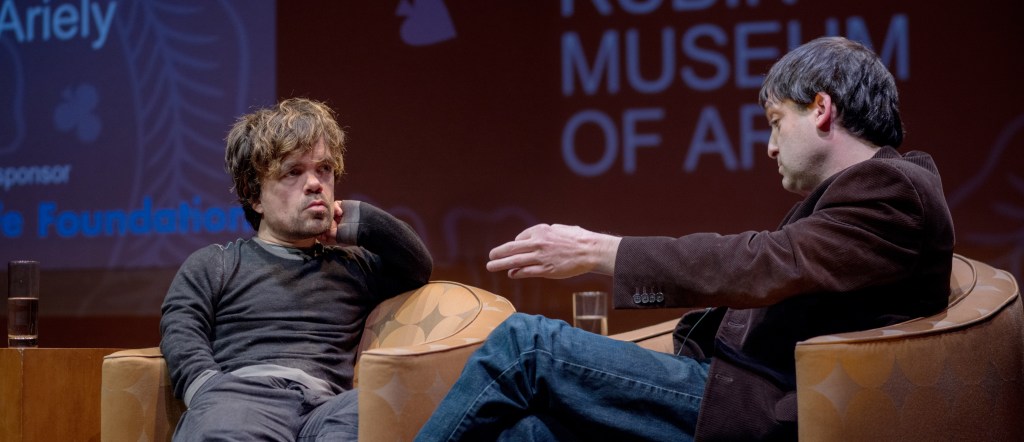Acting Irrationally
Recently I had the opportunity to interview actor Peter Dinklage (of Game of Thrones fame) as part of the Rubin Museum Brainwave series, which pairs big names from pop culture with cognitive researchers to see what comes of it. My intention was to see if I could draw some connections between the craft of acting and the field of social science. (As it turned out, I was fairly unsuccessfully. For now.)
I asked Mr. Dinklage several questions to this effect, which he answered in more or less the same way: “No.”
First, I asked whether the fact that he plays such a conspiratorial, dishonest (albeit relatively heroic) character has any impact on his daily life. “No,” he said, nicely. He explained that he finds it easier to play characters who are very different from himself.
Next I asked if he felt people related to him differently, again, given that his character was remarkably crafty and deceptive. Again, “no.” He gave people credit for being smart enough to differentiate between the person on screen and the one before them.
Finally, I explained an experiment I conducted long ago on people’s experience tasting beer. In this experiment, we had people sample a few beers, one, called the MIT brew, had balsamic vinegar in it. The people who had no knowledge of the vinegar actually liked the beer better; those who knew about the addition hated it. Basically, their preconceptions overwhelmed their experience and made it much worse.
There were two issues at play here: first, that beer is hard to evaluate in general, as there’s no clear scale for judging it. We can say we like or dislike it, sure, and we may even talk about its smooth or hoppy character, but those are simply aspects of the beer without definitive value. Second, expectation changes our experience of things. When there is difficulty in the evaluation of something, expectations can alter experience even more.
To this end, I asked him if he felt acting was ever like wine or beer—something difficult to judge objectively in the face of preconceptions. I explained that before I’d had a chance to watch the show (research!), I had been told that he was the best actor in the series. So, did he think my experience of the show might have been shaped by my expectations? One last “no,” and he went on to explain that acting could certainly be evaluated. At the same time he admitted that there were well-known and well-regarded actors who he thought were terrible (he didn’t provide names). I thought this made my point, but I didn’t say so.
So are there any lessons for acting in social science? I would say there are, but that perhaps actors themselves are too close to their work to appreciate the irrationality in it, and how the majority of people experience entertainment.

 Tweet
Tweet  Like
Like